We have written down what you need to know about eco-anxiety, which is defined as the constant worrying about the future of the Earth and all the living life it hosts.
With this new phase we have entered in the cycle of global warming and cooling, we go beyond talking about the signs of climate change. Because the deteriorating climate due to human behavior and its effects increase its visibility at a rate that we are late to catch up with.
Humanity today uses 74% more resources than ecosystems on the planet can regenerate.
In 2020, due to the effect of the pandemic, the Earth Overshoot day was August 22. But this year, when the calendars show July 29, 2021, we have exhausted a year of natural resources that the earth has given us. Since we have exhausted the earth’s renewable capacity in one year in the first 7 months of the year, we will start to focus on the resources of 2022 for the rest of the year.
Even this information is quite alarming, isn’t it..
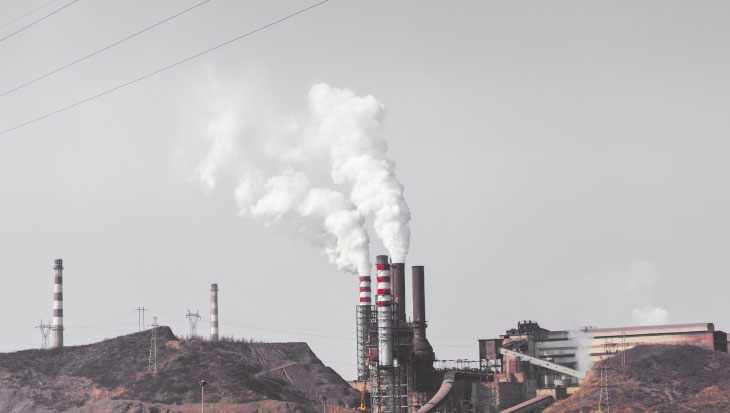
Definition of Eco-Anxiety
Many people see the effects of climate change on their physical health through air pollution, the spread of diseases and food shortages. Mental health experts point out that the crisis we are in is leading to a serious mental health problem: eco-anxiety.
Eco-anxiety is defined as persistent worry about the future of the earth and all living life that it hosts.
While it is not considered a treatable mental illness (DSM-5), at least for the time being, the American Psychological Association (APA) states that “chronic fear of environmental catastrophe stemming from the observation that the effects of climate change are irreversible and associated concern for the future of future generations.” The APA therefore concluded that the globalization of extraordinary environmental problems affecting the planet has had serious psychological consequences for some people.
The condition, which is also associated with the terms ‘climate change suffering’, ‘eco-trauma’, ‘eco-anxiety’ and ‘ecological grief’, includes concerns beyond the symptoms of anxiety alone.
According to a national survey conducted by Yale University in 2018, 69% of people in the United States are concerned about climate change and 51% feel helpless.
Anxiety occurs when your body shows an instinctive reaction to threats it perceives, such as a fight-flight-fight response. These threats are often thought to be rooted in forced, irrational fears. Because the climate crisis is a real threat, anxiety in this context is rooted in survival motivation, leading to unique emotional responses.
Eco-anxiety is a new term; however, it is associated with solastalgia, a term that entered the literature in an article in the medical journal Lancet in 2015 in the context of the impact of climate change on human well-being. Described by the Australian philosopher Glenn Albrecht as a kind of emotional or existential distress caused by the devastating environmental change that takes place within living borders, solastalgia means an indescribable sense of loss and mourning.
Solastalgia is used for people suffering from the consequences of natural disasters, and as such it differs from eco-anxiety. A report by MIT (Massachusetts Institute of Technology) states that 4% of people who survived Hurricane Katrina in 2005 suffered from mental illnesses such as post-traumatic stress or depression.
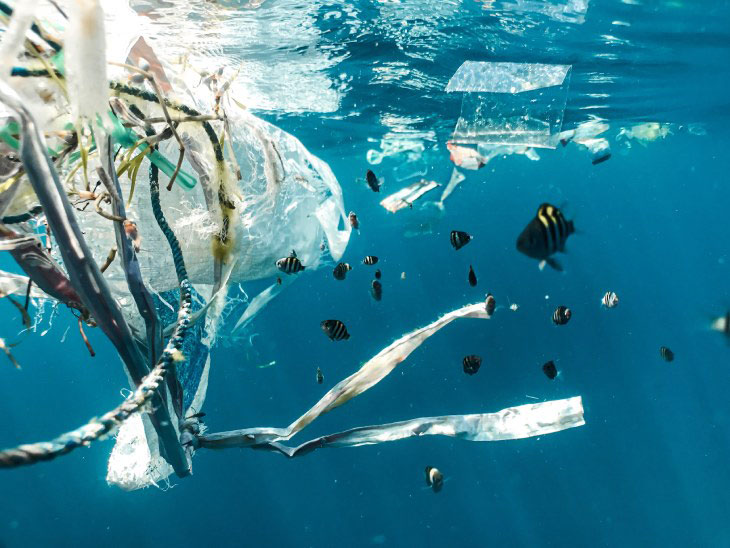
How Does Eco-Anxiety Feel?
This fear is understandable if the thought of permanent changes in temperature, weather, and habitats of animals and humans alarms you. Perhaps you, like others, feel deeply shaken by the damage done to certain natural areas and species.
And if you are in growing despair about this planetary change, you are on the verge of eco-anxiety.
As for the other symptoms of eco-anxiety..
- Anger or disappointment, especially towards people who do not accept climate change or previous generations who did not make any effort to do so
- Fatalistic thinking
- Existential inquiry
- Guilt and shame about their own carbon footprint
- Post-traumatic stress from experience with the effects of climate change
- Feeling depressed, anxious, or fussy
- Grieving the loss of natural resources or wildlife
- Obsessive thoughts about climate
The symptoms do not end there. These feelings also lead to secondary problems such as sleep problems, decreased appetite and poor concentration.
The increased stress on the person – if they do not have the same perspective on climate change – also causes high-level discussions with friends, romantic partners or family members.
Worrying about climate change can become insurmountable if you don’t turn your attention to other issues to avoid these fears. In case of inadequate coping strategies, substance or alcohol addiction results may occur.
What is the Source of Eco-Anxiety?
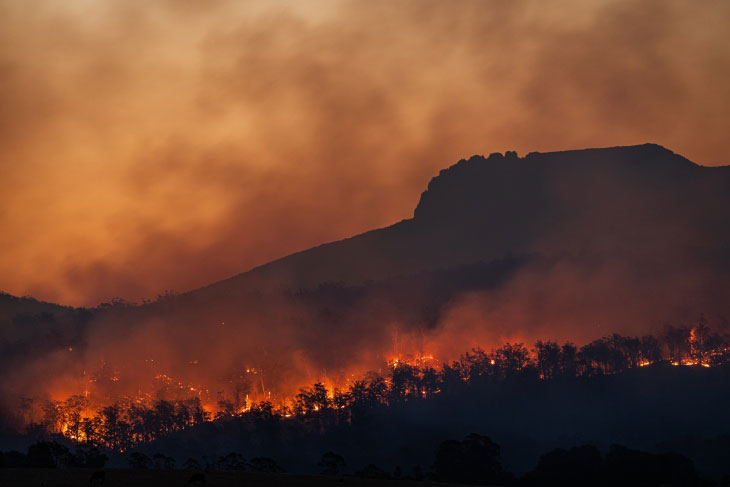
Climate change is a global concern, but it is also personal. Even if you don’t take the time to actively think about your connection to the planet, the outcome of your actions affects everyone.
The earth is the true provider of all resources.
Even though you are detached from this reality, you cannot exist without the Earth. Therefore, it is only natural for you to feel great sadness at witnessing the constant change that the planet is going through.
There are other factors that trigger eco-anxiety:
Experiences
Hearing the long-term effects of climate change is one thing, experiencing it is another.
It’s like facing a disaster, such as a hurricane or a forest fire, that drives you away from your home or completely destroys the area you live in.
Increasing news
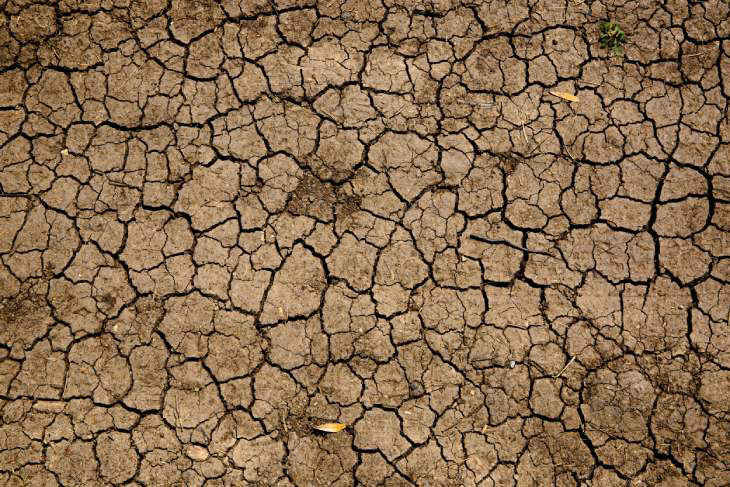
While the increase in the number of news related to climate change creates awareness that will mobilize people, it also triggers the urge to constantly scroll down (doomscrolling) the social media at the expense of getting bad news.
Every piece of news you read about shrinking rainforests, destruction on coral reefs, and single-digit species only brings down the shock and mourning.
This deep desperation makes it difficult, in some cases, to even take action.
Regretting one’s own influence
You can easily judge yourself as contributing to climate change through life practices such as using plastic or styrofoam, turning on the air conditioner, or eating meat.
Feelings of guilt and shame about your impact go hand in hand with a sense of powerlessness that triggers the notion that the limited time left to make a change is running fast.
You, well, can take steps to reduce your carbon footprint; but no one can solve the problem of climate change alone. This is an extremely large-scale problem that requires global commitment.
Your efforts may seem like a drop in a giant pool. This feeling of powerlessness also plays a prominent role in eco-anxiety.
Who Is at the Most Risk?

The existence of each person depends on the health of the planet, so eco-anxiety can affect anyone. But certain groups are at greater risk of facing climate-related damage because of their vulnerability to climate change.
Indigenous communities in particular; people living in coastal areas or on islands, arid regions or places of high geographic risk; socio-economically disadvantaged communities; Children and the elderly, as well as people with disabilities or chronic conditions, are more vulnerable.
How to Cope with Eco-Anxiety?
While it may seem impossible to address your concerns about climate change, there are things you can do to stay sane.
Review your personal habits
Adopting more sustainable daily living practices will help you improve your sense of self as it will help you stay in line with your personal values.
You can also encourage others to adopt these habits.
Measuring your carbon footprint gives you an idea to reduce your impact.
Changes like cycling or walking instead of driving can reduce your carbon emissions while improving your physical and mental health.
You can further expand your efforts by reaching out to organizations working on climate protection.
Don’t deny
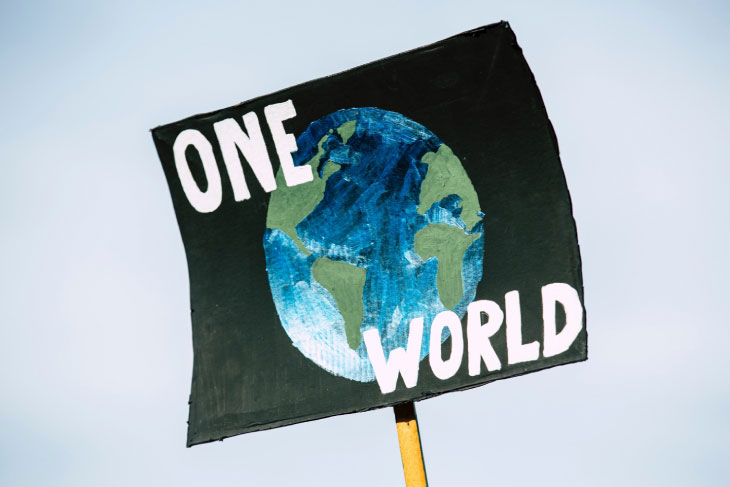
If you’re burying your head in the sand, this behavior will make it harder to take action and won’t make you feel any better.
Instead of denying the reality of climate change or pushing aside your fear and grief, be honest with yourself about these feelings.
If you feel guilty for past behavior, make peace with yourself and make better choices for the future.
Believe in yourself and other people. You can only be one person; but there is so much that even a single person can do.
Connect with your community
Organizing your neighborhood around efforts such as gardening, garbage collection or waste reduction helps reduce feelings of eco-anxiety.
Working with others who want to protect the environment increases the sense of communication and helps to erase the feeling that you are trying alone. Emotional and social support raises your optimism and hope.
Increasing community green spaces increases the chances of success as a group.
Involve children in the process
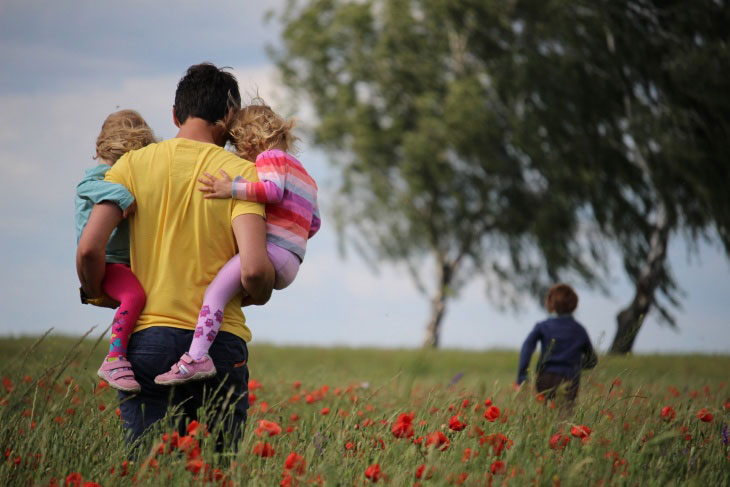
Children also experience eco-anxiety; even young children are trying to figure out how to deal with these complex emotions. Although you may think that discussing climate change with a child will make them feel bad, it is necessary to give them space to talk about these issues and to let them share their concerns.
Let children know that you share similar concerns with them to reduce their stress and anxiety; Listen to their questions and try to answer them in an age-appropriate way.
Tell them why and how you do sustainable practices in your daily life and get them to participate.
We only have one planet. If you have no intention of letting it go, we must continue to fight for it.
related posts
How to Minimize Carbon Footprint?
Decluttering Your Life and Living More Sustainably
Top 10 Mobile Applications for Sustainable Living
From Earth to Humanity: Extraordinary Climate Conditions
4 Important Things to Do for a Better Environment
Sustainable Lifestyle: 4 Useful Tips to Adopt
Key Criteria for Determining the Best Strains for Anxiety

Leave a Reply